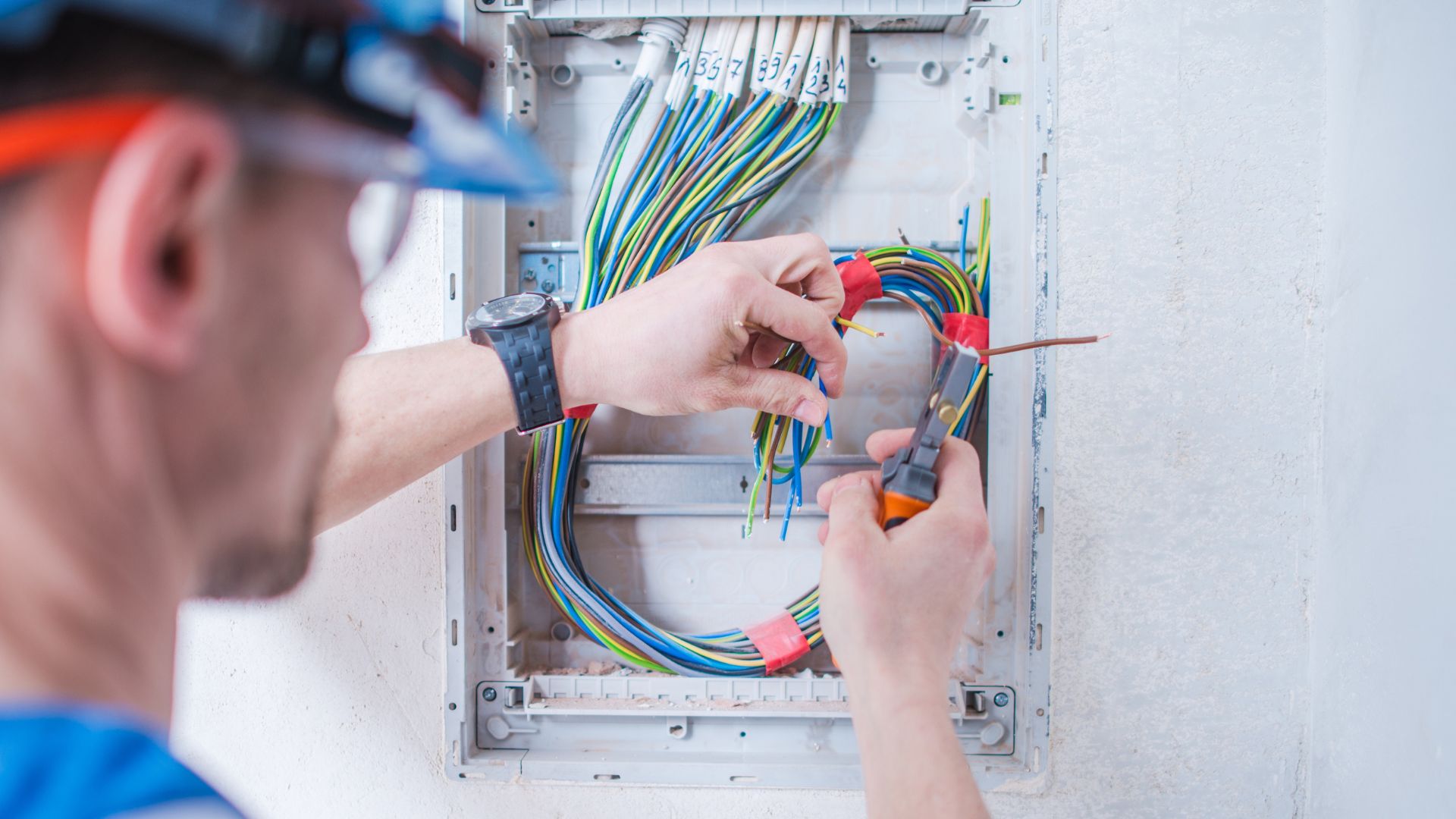A limited electrical license permits electricians to perform specific low-voltage and small-scale electrical work without requiring the qualifications of a full electrical contractor license. This license is an ideal entry point for those looking to specialize in targeted electrical installations while adhering to state-defined parameters.
In this guide, we’ll explore the scope of a limited electrical license, the tasks it allows, the steps to obtain one, and its benefits for professionals in the field.
Key Takeaways
- A limited electrical license enables electricians to handle low-voltage systems, such as fire alarms and wiring for two-family dwellings.
- Most states require electricians to complete supervised work and pass an exam, though exact requirements vary. State Approved provides courses tailored to meet these diverse criteria.
- Regular renewal and continuing education ensure that licensed electricians stay updated with the latest safety standards.
What is a Limited Electrical License?
A limited electrical license is a specialized credential that allows electricians to work on specific projects with restrictions on voltage, scope, and cost. For example, residential wiring is one of the specific projects allowed under this license. These limits ensure the work adheres to regulatory guidelines, promoting both safety and compliance.
Scope of Work
Licensed electricians with this credential can undertake the following:
- Electrical installations for fire alarms and low-voltage systems.
- Maintenance of circuits not exceeding 48 volts or eight amps.
- Electrical work in two-family dwellings, small offices, and residential wiring.
- Specific repairs like replacing outlets and light switches or troubleshooting system malfunctions.
Requirements for a Limited Electrical License
Each state has unique regulations for obtaining a limited license. These often include a mix of experience, education, and examinations.
Experience and Education
Most states require electricians to complete:
- Two thousand hours of supervised work under a licensed electrician or contractor.
- Relevant coursework covering electrical systems, safety protocols, and code compliance.
Exam and Licensing
After fulfilling educational and experiential requirements, candidates must pass a licensing exam. This test assesses knowledge of certain safety standards, as well as state-specific laws. Successfully passing this exam grants eligibility to practice as a limited licensed electrician.
Types of Electrical Licenses
The electrical industry offers various licenses to match different scopes of expertise, such as a master electrician license for industrial work. Understanding these options can help professionals navigate their career paths.
Master Electrician
This is the highest level of licensure, allowing professionals to work independently, oversee projects, and perform complex industrial work. Obtaining this license typically requires several years of experience as a journeyman electrician and passing a comprehensive exam.
Journeyman Electrician
Journeyman electricians are authorized to perform general electrical work under the supervision of a master electrician. They typically complete an apprenticeship and gain substantial on-the-job experience.
Licensed Electrical Contractor
A limited electrician focuses on smaller-scale tasks, including low-voltage systems, residential wiring, and fire alarms. This license is ideal for those who prefer targeted work without pursuing the broader scope of a master or journeyman electrician.
Benefits of Holding a Limited Electrical License
Obtaining a limited electrical license offers several advantages:
- Increased Job Opportunities: Specializing in low-voltage and small-scale projects creates a niche market, particularly for residential and small business electrical needs.
- Professional Credibility: Clients trust licensed electricians who demonstrate compliance with industry standards.
- Focused Expertise: By concentrating on specific tasks, limited electricians can enhance their skills and provide high-quality work.
Challenges and How to Overcome Them
Understanding Local Regulations
Local building codes vary significantly, posing a challenge for limited electrical contractors. Staying informed through resources like state websites and industry associations is crucial.
Adapting to National Electrical Code Changes
Frequent updates to the National Electrical Code require electricians to stay current. Completing regular continuing education ensures compliance and boosts professional knowledge.
Networking and Peer Support
Joining trade associations or local forums can help electricians navigate challenges, share knowledge, and access valuable resources.
Renewal and Continuing Education
Maintaining a limited electrical license involves the following:
- Completing continuing education to stay updated on NEC revisions and safety standards.
- Renewing the license periodically, as required by the state.
This commitment to ongoing learning enhances skill sets, ensures compliance, and strengthens credibility in the industry.
Differences Between Limited and Full Licenses
A limited electrical license confines professionals to specific tasks, while a full license allows broader scope and scale. Key differences include:
- Project Size: Limited licenses cap project costs and system voltage; full licenses have no such restrictions.
- Responsibilities: Full licenses enable professionals to handle large-scale industrial work and lead teams, while limited licenses focus on smaller, low-voltage tasks.
How State Approved Continuing Education Can Help
Obtaining a limited electrical license is an essential step for electricians specializing in low-voltage and small-scale projects. It provides focused expertise, enhances job opportunities, and promotes adherence to safety standards. By understanding licensing requirements, staying updated with NEC changes, and investing in continuing education, electricians can build successful careers within this niche.
If you’re looking to simplify your licensing journey, reach out to us. We at State Approved Continuing Education help you efficiently meet licensing requirements and take the next step in your electrical career. Whether you need a Texas electrical license continuing education, or other licensing support, let us be your partner in achieving professional success.



